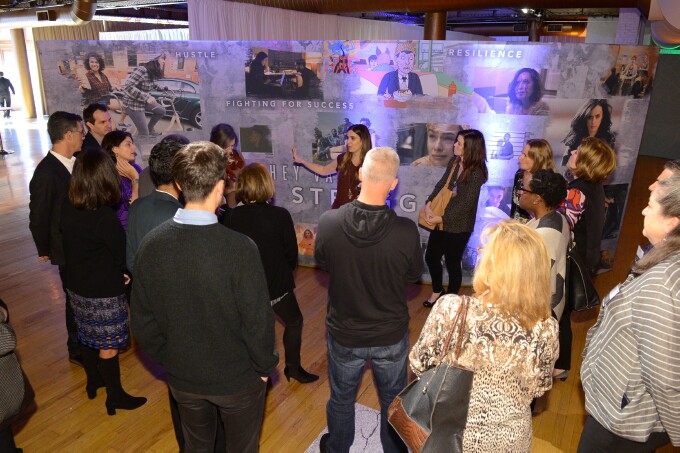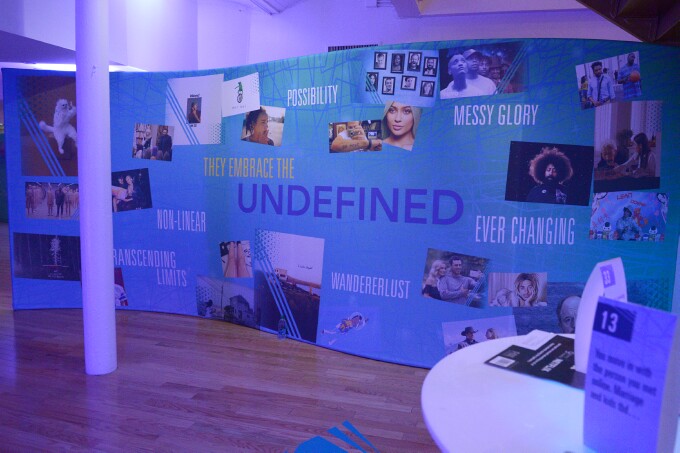In an inventive departure from the usual ad sales events, Freeform representatives escorted clients through four separate rooms, each filled with informative and interactive displays highlighting one of the network’s recently identified audience mindsets (more on those mindsets below). In addition to an overview of each mindset, attendees were asked to perform a task that helped explain how the mindset worked. One task involved going through a series of psychological questions that led to the determination of one’s ultimate profession. Another had participants describe celebrities in one word and hang their photo on a tree. After the tour, attendees enjoyed a luncheon panel of agency thought leaders who gave their perspectives on each mindset and its implications for advertisers.
Research to Discover Mindsets
A two-year research exploratory effort resulted in the identification of nine relevant themes, all of which spoke directly to Becomers. (At the event, Freeform chose to focus on the four that the network thought best captured the most compelling aspects of the Becomers' overall mindset.) The study reached out to 10,000 respondents, according to Jane Gould, Senior Vice President of Consumer Insights, Freeform, who noted, “We wanted to listen and be a part of the youth culture and see the world through their eyes, We wanted to bring to life the visual culture of the demographic, not by asking how they feel but by studying images and signs that decode the visual culture.”
Gould stressed that this research study did not ask respondents direct questions (which is unlike most research studies). “We had them focus on an image,” she explained. “Respondents gave us a dream that represented them. Then, using images pushed through semiotic analysis that uses both anthropology and linguistics, we brought the mindsets to life.”
The Mindsets
Thes mindsets Freeform chose to highlight at the event -- They Value the Struggle, Embracing the Undefined, Being Intersectional and Standing Together -- are each in their own unique way focused on a cultural and/or behavioral touchpoint of this generation. When these sensibilities are evident in content, branding and messaging, a deeper understanding and connection are formed.

They Value the Struggle encourages fighting for success. (The Struggle Wall is pictured above.) It embodies resilience, the journey of working hard for achievement, hustling. The 14-34s don’t want to see people who were given everything without working. They believe that people have to work hard for what they get. But engaging in the struggle can make them anxious. An example of a celebrity who embodies The Struggle is Beyonce who, after achieving great success through her own hard efforts, reveals her authenticity in sharing her real life hardships. This helps her to stay relevant with this audience.

Embracing the Undefined shows the non-linear possibilities that transcend limits, encourage wanderlust and create what Freeform calls a messy glory (see photo above). When everything is crumbling, seize the opportunity and pivot to positivism. Memes like the Crying Michael Jordan and programming like FX’s Louie and Netflix’s Unbreakable Kimmy Schmidt are examples of Embracing the Undefined. If life gives you lemons, you don’t necessarily need to make lemonade. You can also make lemon cake. You have many options.